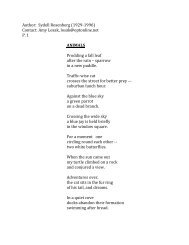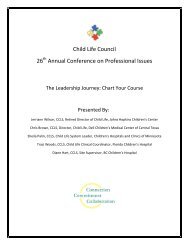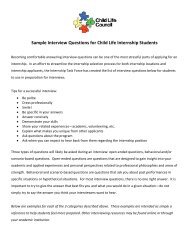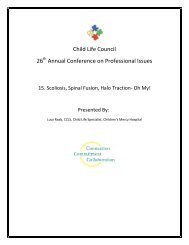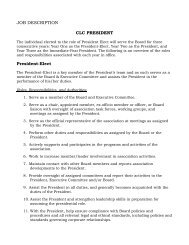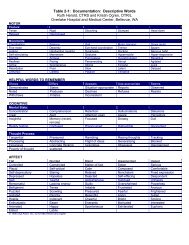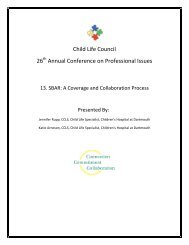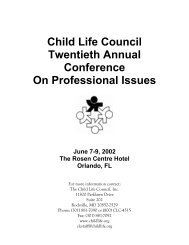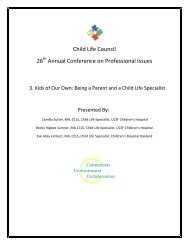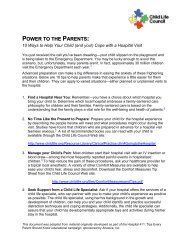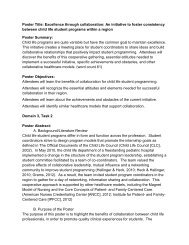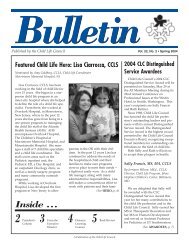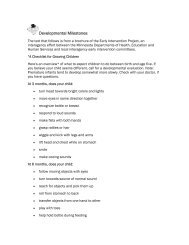Child Life Clinical Internship Curriculum - Child Life Council
Child Life Clinical Internship Curriculum - Child Life Council
Child Life Clinical Internship Curriculum - Child Life Council
You also want an ePaper? Increase the reach of your titles
YUMPU automatically turns print PDFs into web optimized ePapers that Google loves.
6. Develop skill and comfort level in communicating with others within the health care<br />
team to obtain and share information, as well as to advocate for and educate around<br />
children’s and families’ needs and perspectives.<br />
7. Articulate the impact of her/his own communication style and behaviors on<br />
interactions with children, families, and other professionals.<br />
8. Establish professional presentation of self with regard to own verbal and nonverbal<br />
communication.<br />
Required Activities<br />
The intern will:<br />
1. Observe and discuss with CCLS how to adapt approaches to introducing self and child<br />
life services to children, families, and staff according to relevant contextual factors.<br />
2. Discuss with CCLS and demonstrate diverse techniques to establish rapport with<br />
children and families.<br />
3. Observe CCLS and then demonstrate skill in learning from children and families<br />
regarding their perspectives and experiences.<br />
4. Articulate observations and interpretations regarding identification of:<br />
a. communication styles and preferences<br />
b. factors that contribute to successful communication, as well as those that<br />
contribute to confusion or ineffective communication<br />
c. unique communication needs (including use of interpreter services and respect<br />
for cultural norms).<br />
5. Complete at least 3 journal entries that focus on the intern’s own experience of and<br />
reflection on:<br />
a. The need to adapt her/his communication approach within an interaction<br />
b. Communicating with sensitivity and empathy in a challenging situation<br />
c. How building awareness of her/his own communication style and behaviors<br />
has influenced communication interactions with others (children, families, and<br />
staff).<br />
6. Demonstrate skill in developmentally‐appropriate communication and language by:<br />
a. Effectively establishing rapport with children within each age group (infant,<br />
toddler, preschool, school‐age, adolescent, young adult)<br />
b. Choosing 3 diagnoses or procedures relevant to current patient population and<br />
articulate or write what and how to communicate an explanation of the<br />
condition/procedure with children of different ages (preschool, school‐age,<br />
adolescent).<br />
21



